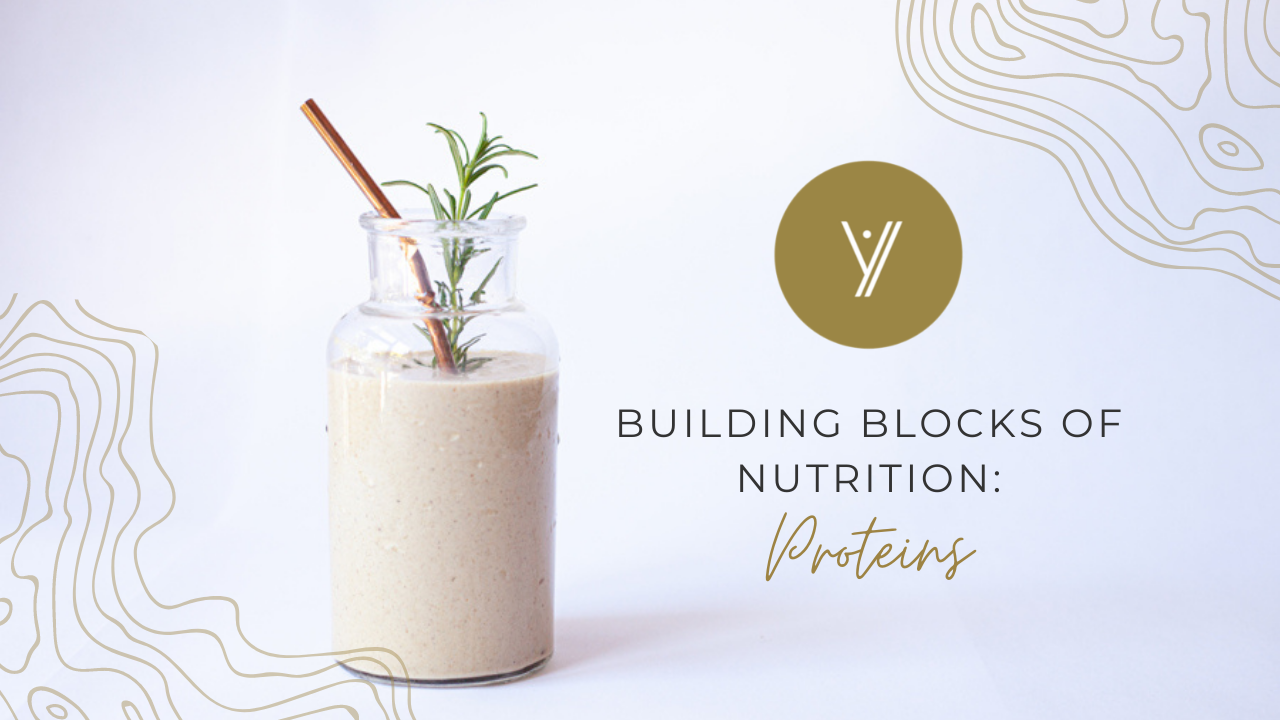Building Blocks of Nutrition: Proteins
Jun 22, 2021
Proteins are a fundamental building block of many of the cells in our body. Muscles, hair, skin and connective tissue are mainly made up of proteins. Many important things like enzymes, hormones, neurotransmitters, and even DNA are partially made of protein. I think you are getting the gist, proteins are very, very important for us.
Some functions of proteins:
- Vital in maintenance, development and repair of body tissue.
- Hair, skin, eyes, muscles and organs are all made from protein.
- Protein is a major source of energy.
- Protein is involved in the creation of some hormones.
- Enzymes are proteins that increase the rate of chemical reactions in the body.
- Protein is a major element in transportation of certain molecules.
- Haemoglobin is a protein that transports oxygen throughout the body.
- Protein is also sometimes used to store certain molecules.
- Protein forms antibodies that help prevent infection, illness and disease.
What are Proteins made of?
Proteins are made up of smaller units called amino acids, which are attached to one another in long chains. There are 20 amino acids that combine in different ways to make a protein. Our bodies are able to manufacture 11 of the 20 amino acids, but 9 of them must come from our diets. We use this distinction to classify amino acids.
Types of Amino Acids
- Essential amino acids
- Nonessential amino acids
- Conditional amino acids
Essential amino acids
- Our bodies are not able to make any of the 9 essential amino acids, they must come from our food.
- These 9 essential amino acids are histidine, isoleucine, leucine, lysine, methionine, phenylalanine, threonine, tryptophan, and valine.
Nonessential amino acids
- Our bodies normally produce the 11 nonessential amino acids. We do not need to include these in our diet except in certain circumstances (see conditional amino acids).
- Nonessential amino acids include alanine, asparagine, aspartic acid, and glutamic acid.
Conditional amino acids
- Conditional amino acids are usually not essential, except in times of illness and stress, when they require to be included in our diet.
- Conditional amino acids include arginine, cysteine, glutamine, tyrosine, glycine, ornithine, proline, and serine.
You do not need to eat essential and nonessential amino acids at every meal, but getting a balance of them over the whole day is important.
Proteins Groups
Complete proteins:
- Foods that contain all essential amino acids are called complete proteins and sometimes called ideal or high-quality proteins.
- Animal proteins such as meat, eggs, and dairy products contain all the essential amino acids so they’re examples of complete proteins.
Incomplete proteins:
- Plant proteins are also made up of amino acids, but it’s rare for a plant protein to contain all the essential amino acids, so they’re referred to as incomplete proteins.
A note to our vegans and vegetarians
Vegetarians who eat eggs and/or dairy products don’t have much to worry about as they have complete proteins in their diet. Vegans, who only eat plant-based foods, may have to pay more attention to their protein sources to make sure they get all the essential amino acids into their daily diet. Proteins such as soy, quinoa, or chia, are complete proteins and are good choices, alternatively try consume complementary proteins every day to ensure intake of all essential amino acids.
Incorporating Protein into Your Diet
Foods that are high in protein can improve/maintain health and increase vitality, but remember that processed proteins can be loaded with extra calories, fat, sodium or even hidden added sugars. Here are a few tips from Living well fit, to get enough healthy, natural protein into your diet:
- Serve scrambled eggs and spinach for breakfast.
- Add seeds or chopped nuts to a green salad or on top of a veggie side dish.
- Snack on a handful of almonds and berries or a small to medium sized apple.
- Buy lean cuts of meat and avoid heavy creamy sauces that can add a lot of extra calories. Serve your meat with lots of dark green and colourful veggies.
- Eat more fish, but avoid breaded fish. Choose baked or poached fish if possible.
- Serve baked or roasted chicken instead of fried chicken.
- Make a stir-fry with pieces of chicken and fresh veggies.
